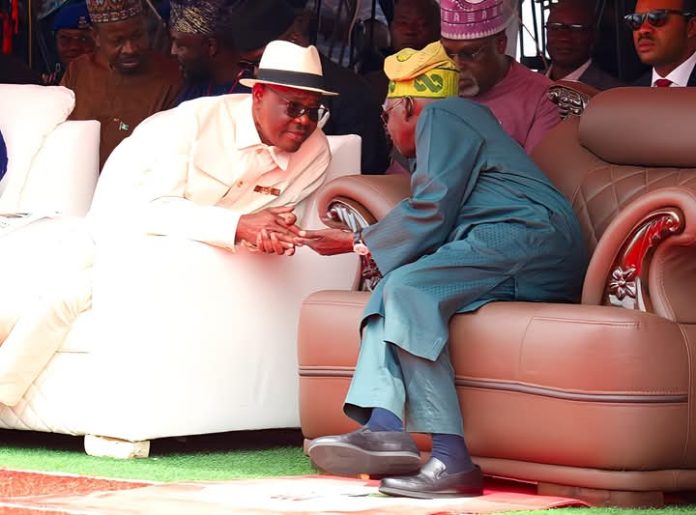Political activists and residents of Rivers State have expressed deep disappointment over President Bola Ahmed Tinubu’s failure to use the June 12, 2025 Democracy Day celebration as an opportunity to restore democratic governance in the state.
Many had anticipated that the President would mark the symbolic occasion by ending the suspension of democratic rule and reinstating Governor Siminalayi Fubara. Instead, Tinubu made no mention of Rivers State in his address to a joint session of the National Assembly, a silence that has been described as both deliberate and deafening.
The President had declared a six-month state of emergency in Rivers on March 18, 2025, citing escalating political unrest under Fubara’s administration. He justified the suspension of the governor by invoking Section 305 of the 1999 Constitution, claiming the situation had become a threat to national stability.
However, critics argue that conditions in the state have worsened under emergency rule. Despite continued federal allocations, residents report stagnation in development, abandoned infrastructure projects, and a lack of democratic accountability. There is growing concern over the concentration of power in the hands of a Sole Administrator appointed by the President, who is alleged to be installing loyalists of Minister of the Federal Capital Territory, Nyesom Wike, across key local government positions.
Many observers believe the emergency rule is less about security and more about political control. Senator Henry Seriake Dickson criticised the President for failing to address the issue on Democracy Day, stating that it undermines the spirit of June 12 and damages Nigeria’s democratic credentials. He argued that the silence on Rivers State was a missed opportunity to restore constitutional governance and reassert the values of democracy.
Legal experts and political figures from the state, including APC chieftain Chizy Enyi, say the ongoing crisis is being driven by an internal power struggle between Fubara and Wike, with Tinubu siding with the latter to secure political influence ahead of the 2027 elections. Enyi said that the President’s actions have effectively dismantled Fubara’s authority in order to hand control of the state’s political machinery back to Wike, a move he described as unconstitutional and undemocratic.
According to Enyi, Tinubu’s real motive is to ensure dominance in Rivers State in 2027 by using the current arrangement to secure loyalty. He questioned how elections could be conducted under military-style rule and pointed to Supreme Court rulings that prohibit unelected appointees from running local governments.
Former APC spokesperson Eze Chukwuemeka Eze echoed this sentiment, accusing the President of deliberately underdeveloping the state to weaken former Minister of Transportation, Rotimi Amaechi’s political base. He argued that the emergency rule is part of a broader plan to capture Rivers’ political and economic resources for personal political advantage.
Residents like Dike Emmanuel lament the halt of ongoing development projects, while others, such as Finipri Obomanu, insist that Rivers was peaceful before the state of emergency and did not warrant such drastic intervention. They argue that compared to states like Benue, Zamfara, and Plateau, Rivers had not experienced severe security breakdowns to justify the suspension of democratic governance.
The Ijaw Youth Council (IYC), among other civic groups, also called on Tinubu to demonstrate his democratic credentials by ending the emergency rule and reinstating Governor Fubara and other elected officials. The Council appealed for the restoration of the people’s mandate as a way to honor the democratic sacrifices symbolised by June 12.
Across the state, there is a growing sense of betrayal. Many residents feel that their constitutional rights have been trampled upon and that their political will, expressed at the ballot box, is being subverted in favour of elite political deals. With 2027 looming, the political climate in Rivers remains tense, and the people are watching closely as the consequences of federal intervention continue to unfold.
